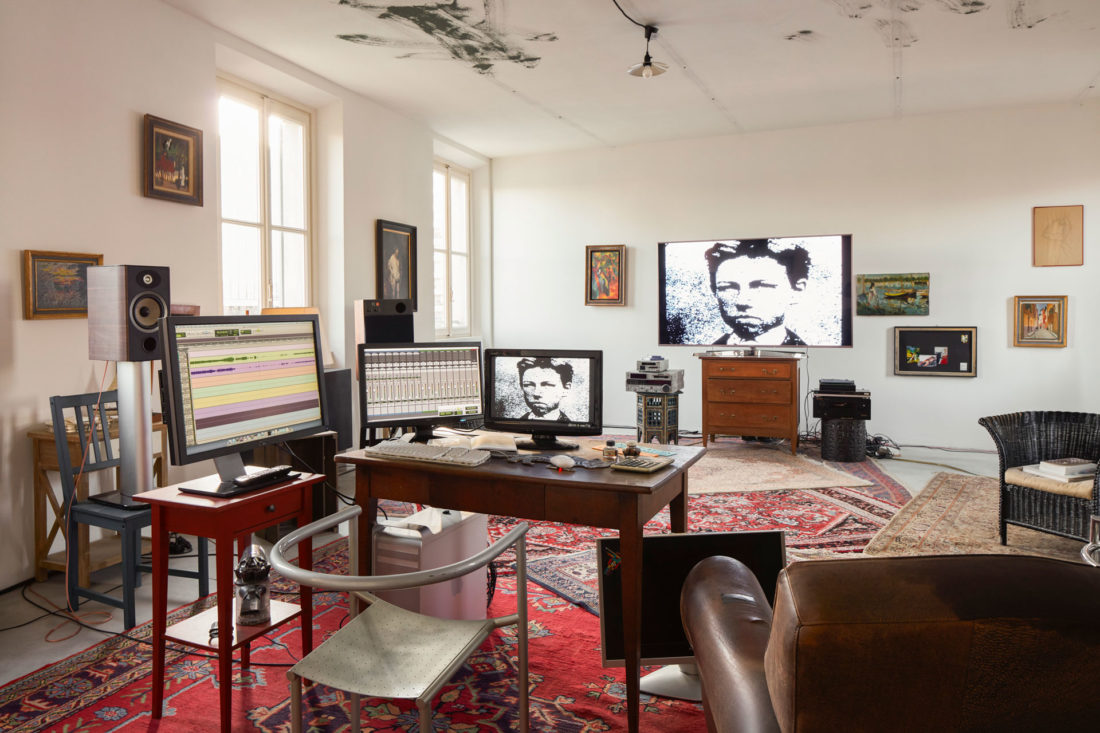LE STUDIO D’ORPHÉE, JEAN-LUC GODARD
From December 4th, 2019, “Le Studio d’Orphée” by Jean-Luc Godard is on view at Fondazione Prada in Milan; an atelier, a recording and editing studio, a life- and workplace that finds its new position on the first floor of the South gallery, one of the industrial buildings of Fondazione Prada headquarters in Milan.
The film-maker decided to move there the technical equipment used from 2010 to realise his last films, together with furniture, books, paintings and other personal objects coming from his studio-apartment in Rolle, Switzerland.
The word “atelier”, used by Godard to define this space, evokes the artisan dimension that characterises his director activity, matching his own cinematographic work with the universes of theatre and visual arts. Inside “Le Studio d’Orphée” the feature film Le Livre d’image, 2018, and nine short films by the French director — On s’est tous défilés, 1988; Je vous salue Sarajevo, 1993; Les enfants jouent à la Russie, 1993; The Old Place, 1998; De l’origine du XXIème siècle, 2000; Liberté et Patrie, 2002; Une bonne à tout faire, 2006; Vrai faux passeport, 2006; Une Catastrophe, 2008 — are to be seen, all of them broadcast on a TV screen which has been regularly used by Godard as a work tool.
The visitors have the unique chance to participate in the showing of Le Livre d’image inside the physical place where it was conceived and realised, during editing, sound mixing, production and post-production stages. Here it’s possible, for the first time, to be in close contact with the creative process at the origin of a cinema work.
“Presque tout le monde a le courage de vivre sa vie, mais pas de l’imaginer” (“Almost everyone has the bravery to live his/her life, but not to imagine it”), as declared by Edgar, the main character of the movie Éloge de l’amour, directed by Jean-Luc Godard in 2001.
In this dialectic between life and imagination, existence and artistic creation, is concentrated the poetic and metamorphic strength of “Le Studio d’Orphée”, which title expressly alludes to the myth of Orpheus and Eurydice and builds a parallel between the director and the Greek poet-musician.
For the Milan spaces of Fondazione Prada, Jean-Luc Godard also conceived “Accent-sœur”, a sound installation placed inside the lift of the Torre. The visitors can hear the soundtrack of Histoire(s) du cinéma, a video work in eight chapters started in 1988 and concluded in 1998; the director used excerpts from films, newscasts, philosophy texts, novels, poems, music and artworks to describe the complex and multifaceted history of the seventh art. It is not by chance that one of the phrases that Godard pronounces in Histoire(s) du cinéma acts as follow: “Moi aussi, j’avais cru un instant que le cinéma autorise Orphée à se retourner sans faire mourir Eurydice. Je me suis trompé. Orphée devra payer.” (“I, as many others, thought for a moment that cinema could permit Orpheus to turn without making Eurydice die. I made a mistake. Orpheus will pay.”).
“Le Studio d’Orphée” is open to the public from Wednesday to Monday from 1 to 7 pm. Entry is allowed only upon booking.
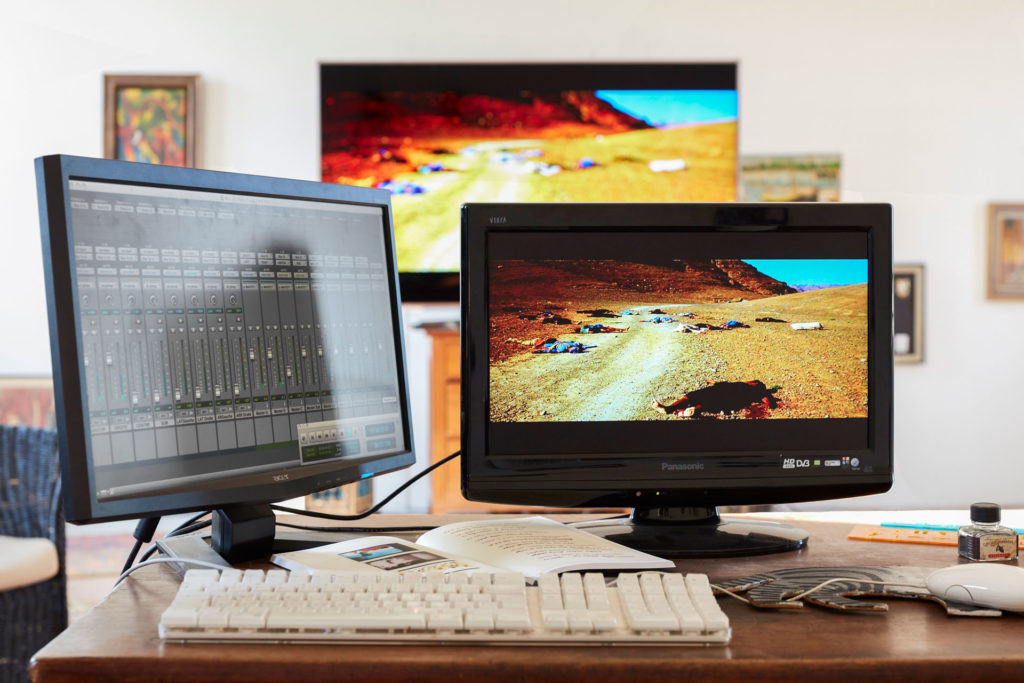
Jean-Luc Godard – Le Studio d Orphee – Ph. Agostino Osio – Alto Piano Courtesy Fondazione Prada
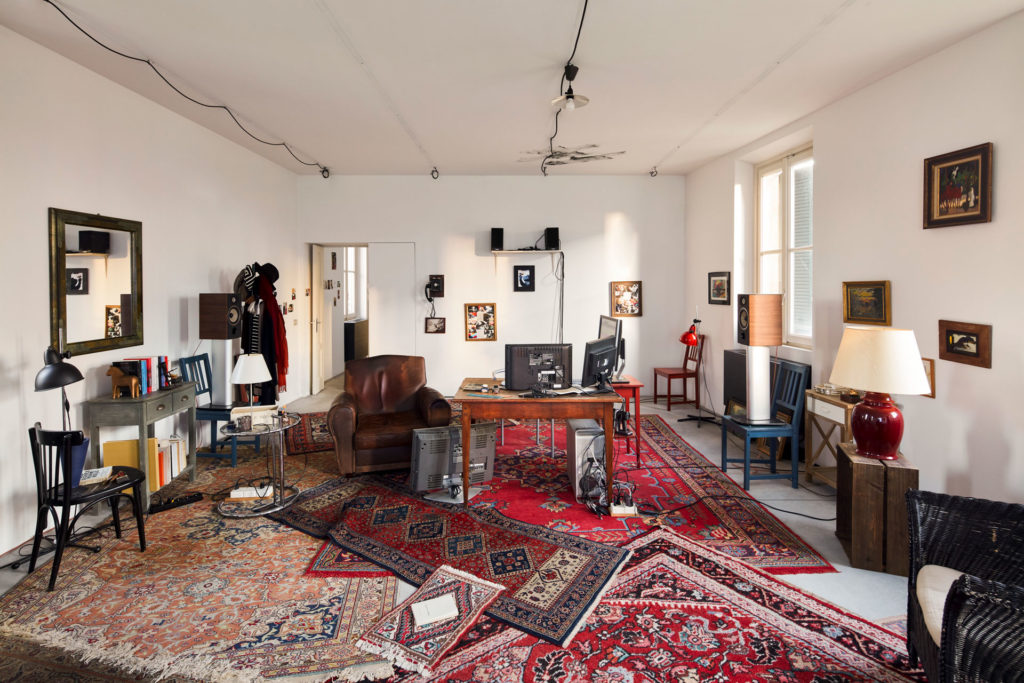
Jean-Luc Godard – Le Studio d Orphee – Ph. Agostino Osio – Alto Piano Courtesy Fondazione Prada
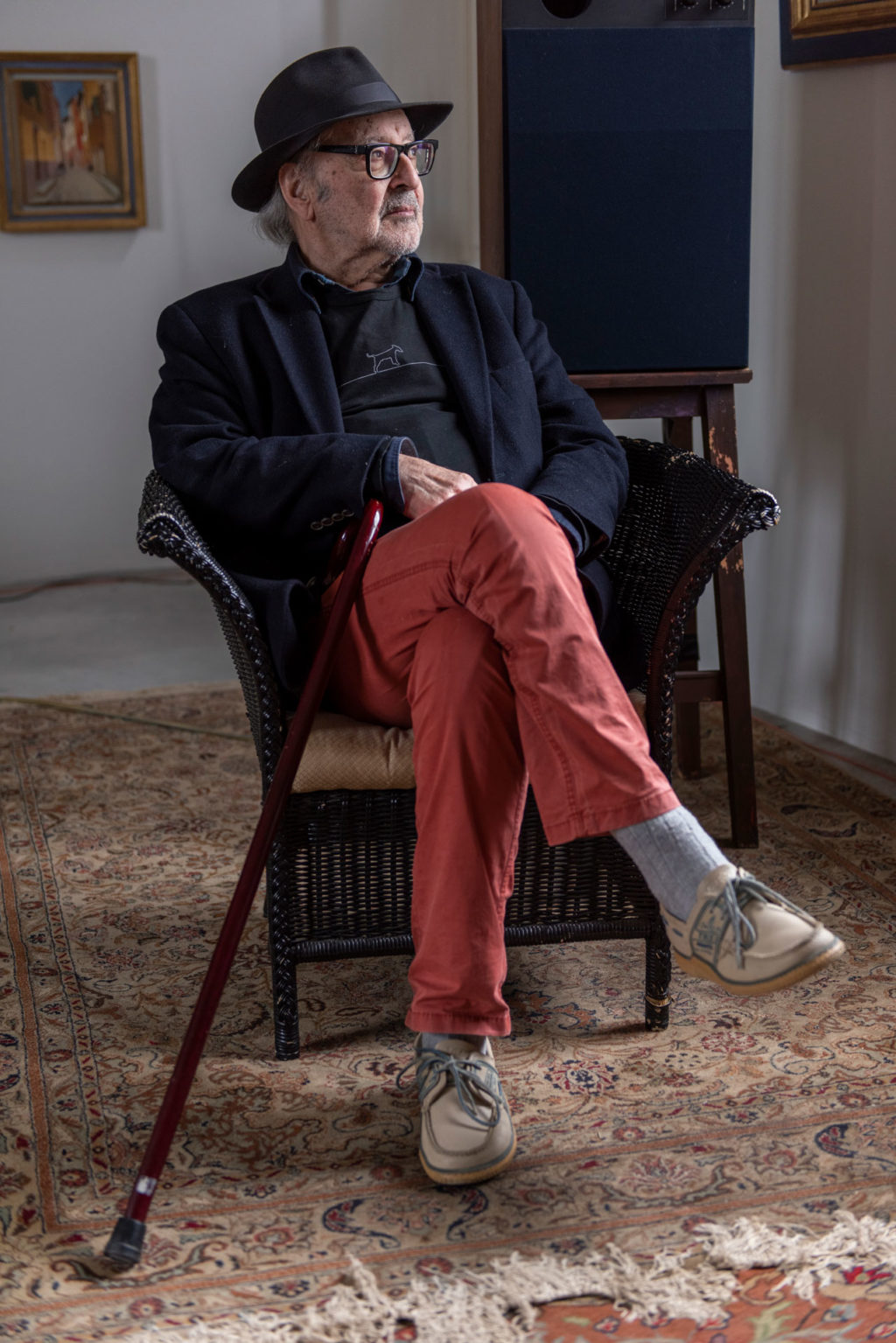
Jean Luc Godard – Ph. Niccolò Quaresima
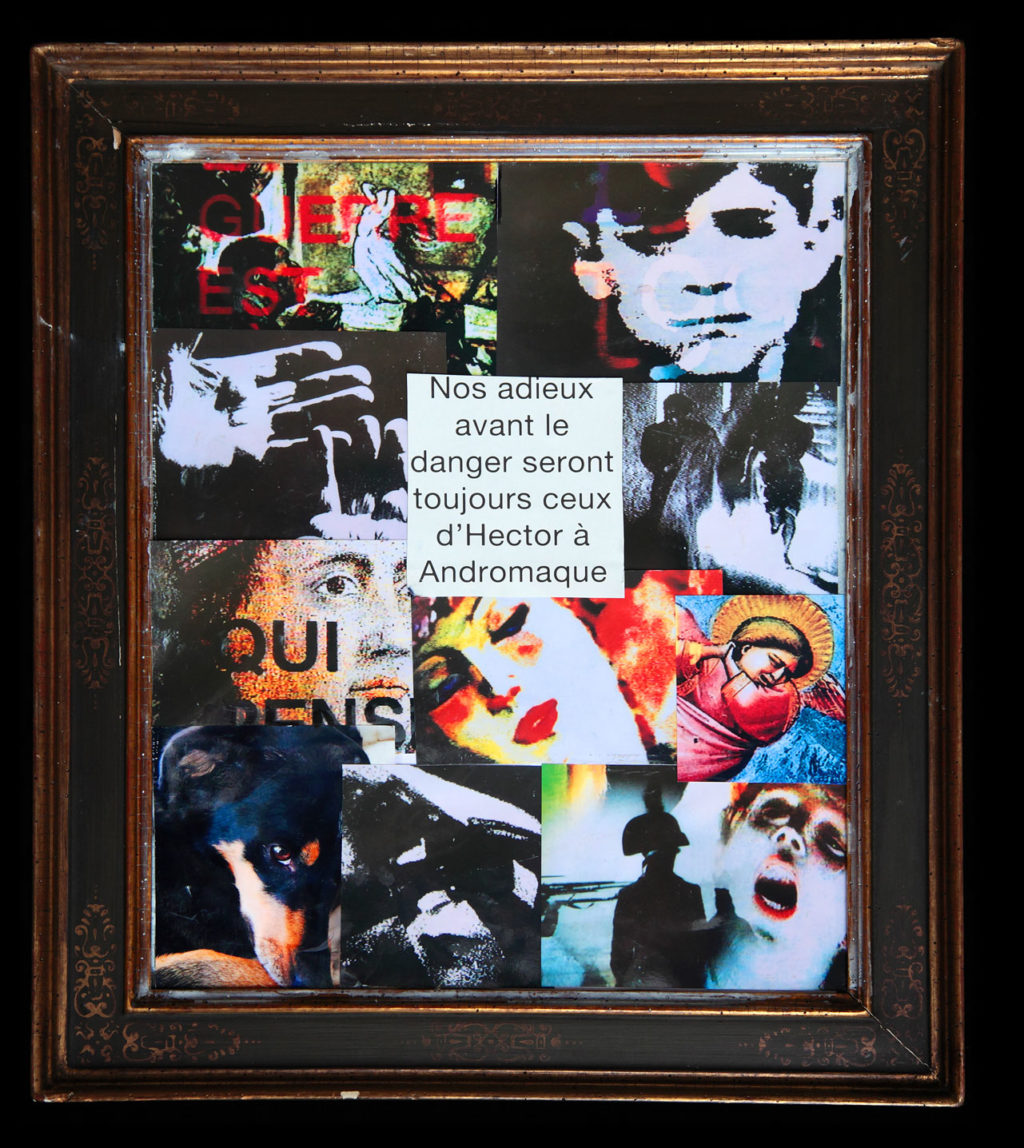
Jean-Luc Godard – Le Studio d Orphee – Ph. Agostino Osio – Alto Piano Courtesy Fondazione Prada
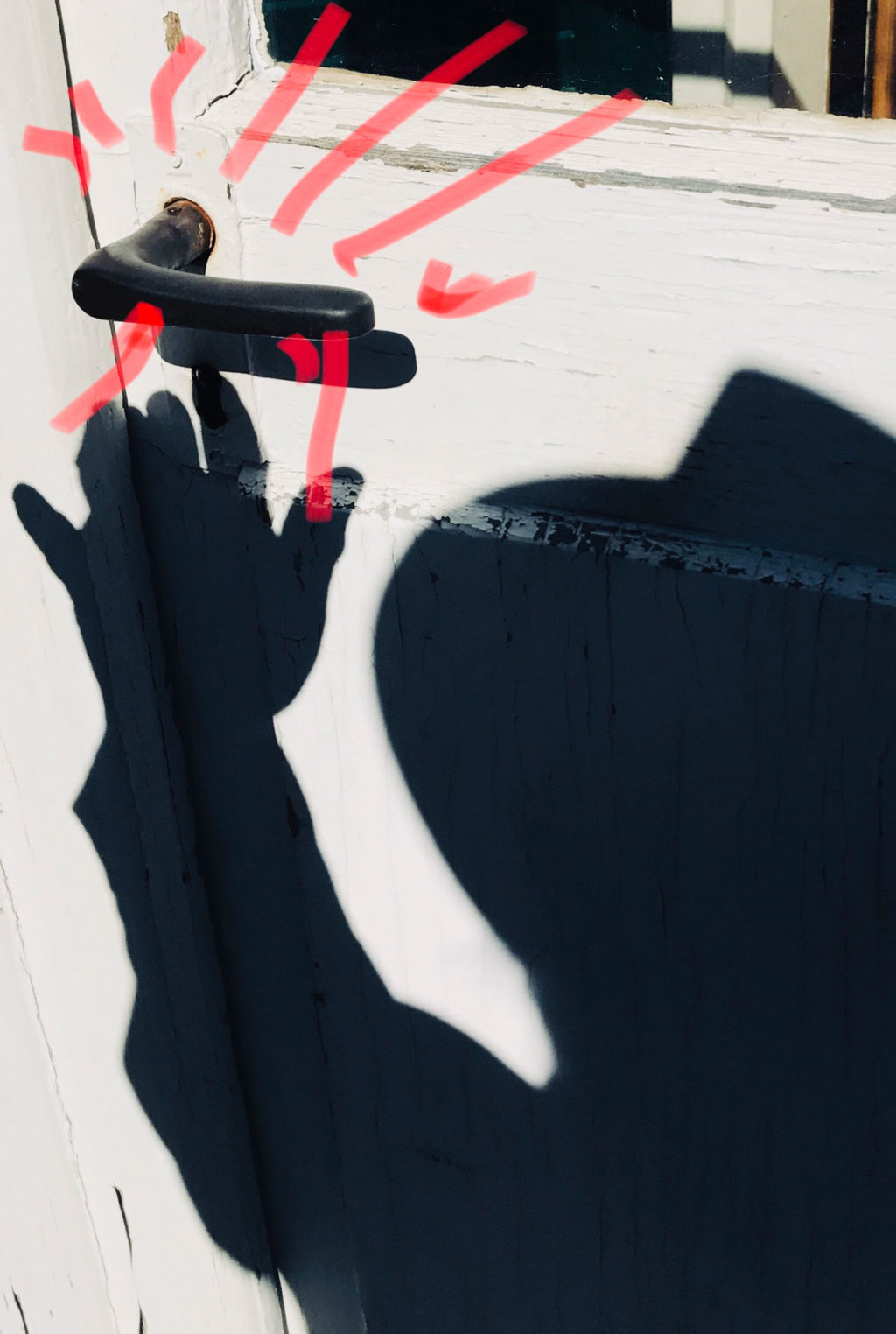
Jean-Luc Godard – Le Studio d Orphee – Ph. Agostino Osio – Alto Piano Courtesy Fondazione Prada
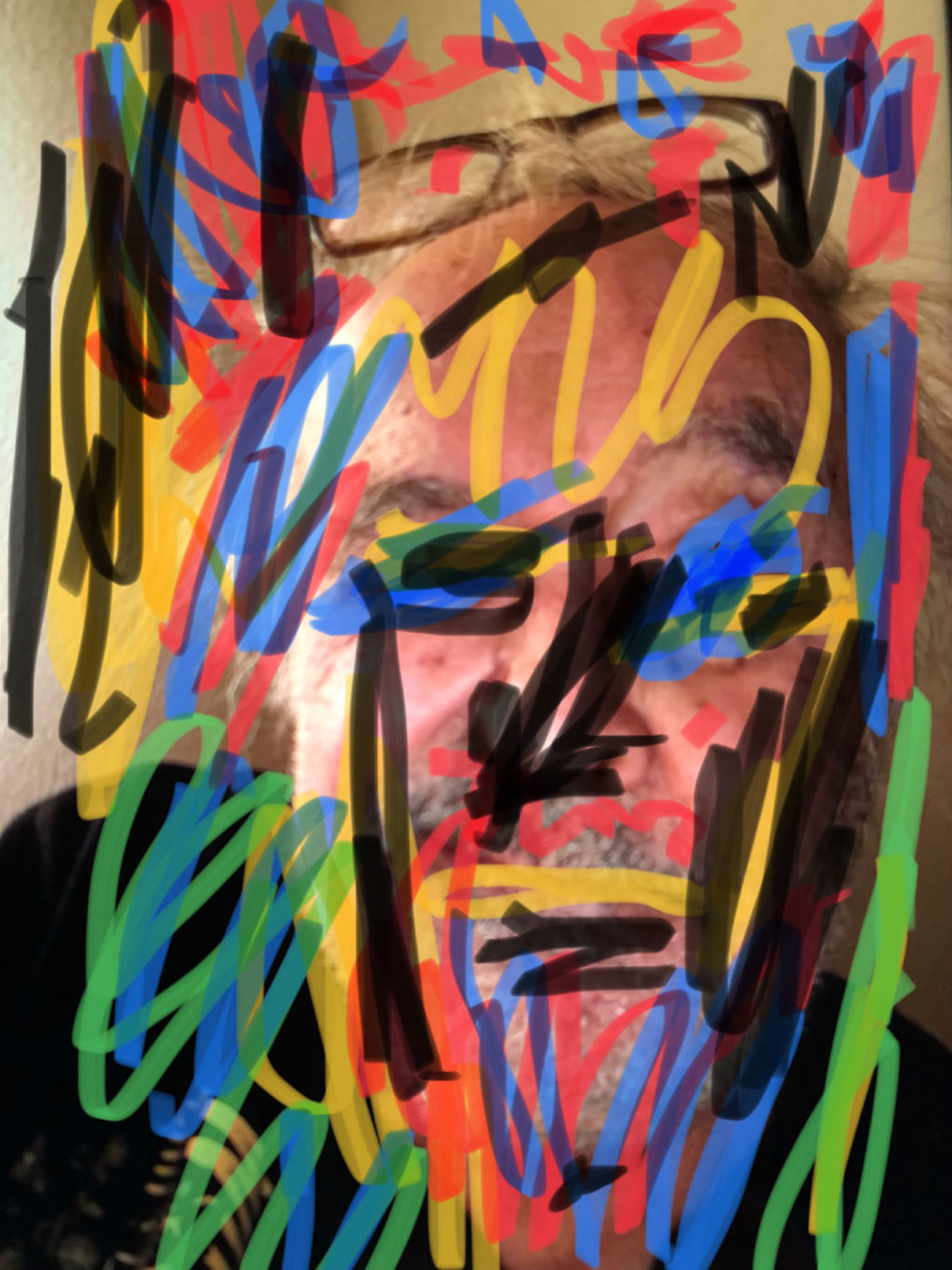
Jean-Luc Godard – Le Studio d Orphee – Ph. Agostino Osio – Alto Piano Courtesy Fondazione Prada
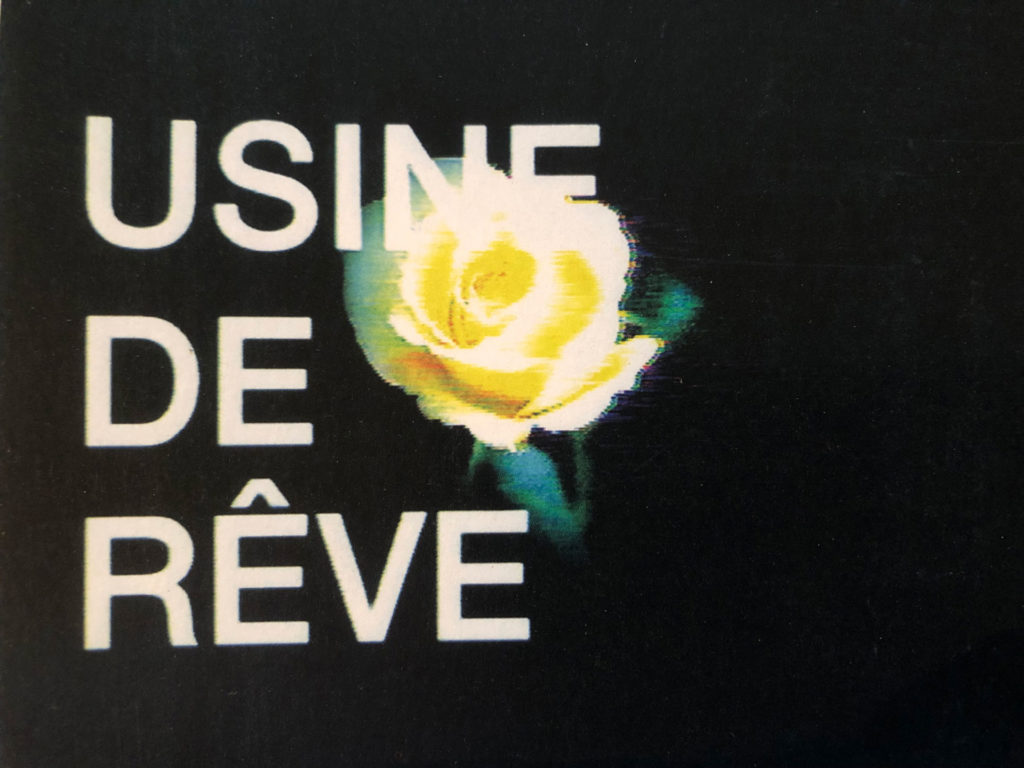
Jean-Luc Godard – Le Studio d Orphee – Ph. Agostino Osio – Alto Piano Courtesy Fondazione Prada
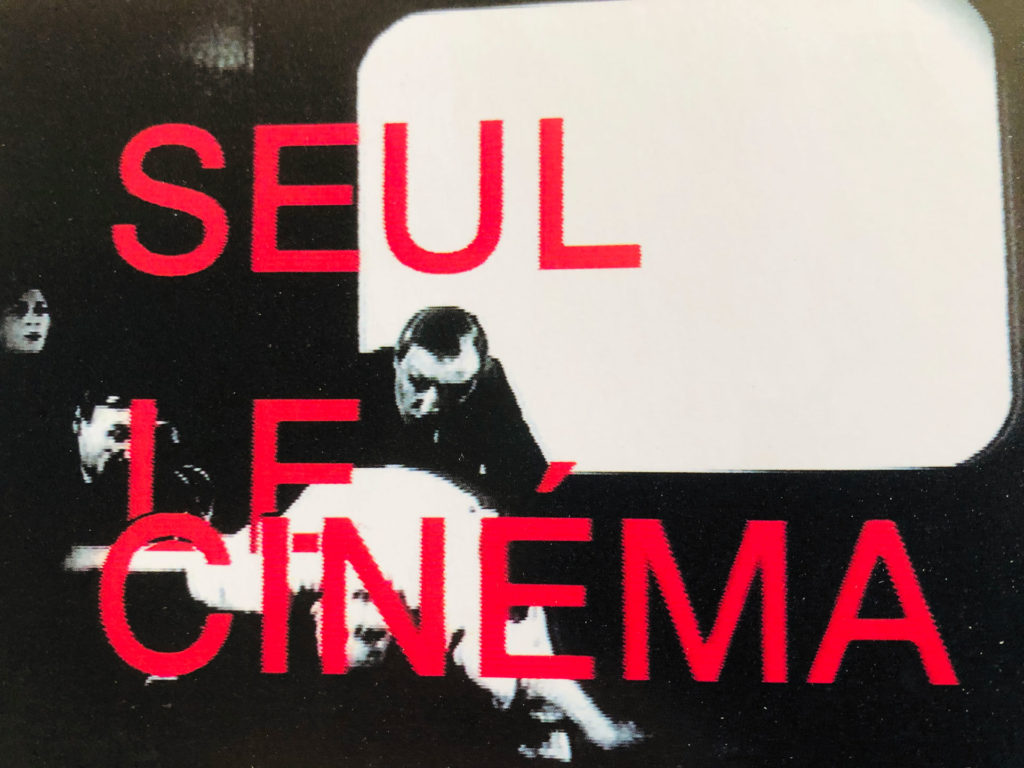
Jean-Luc Godard – Le Studio d Orphee – Ph. Agostino Osio – Alto Piano Courtesy Fondazione Prada
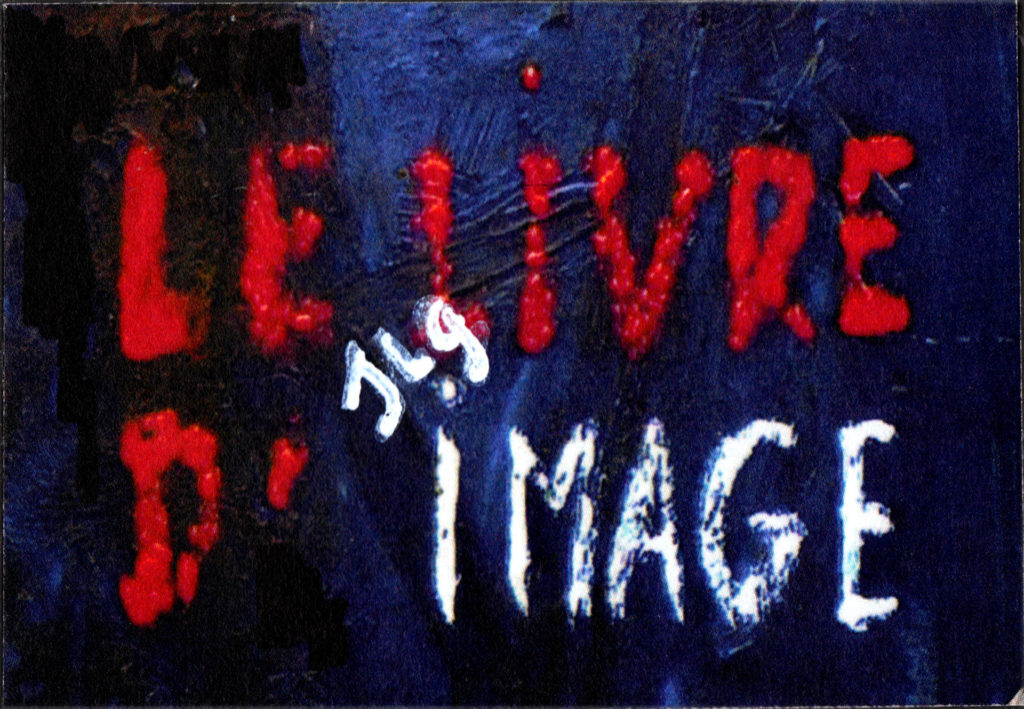
Jean-Luc Godard – Le Studio d Orphee – Ph. Agostino Osio – Alto Piano Courtesy Fondazione Prada
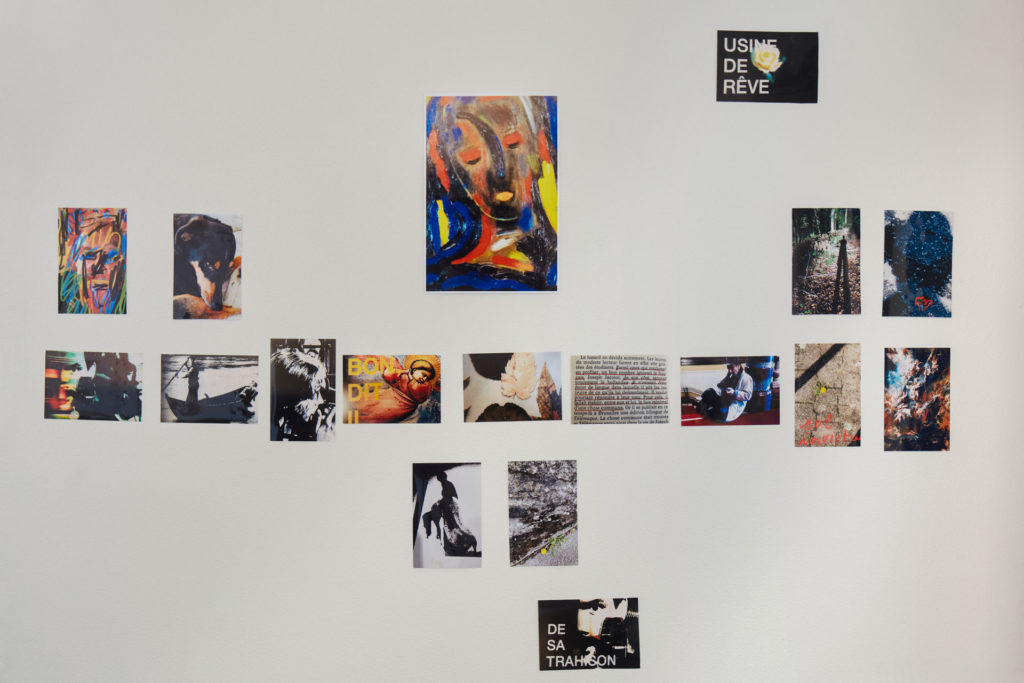
Jean-Luc Godard – Le Studio d Orphee – Ph. Agostino Osio – Alto Piano Courtesy Fondazione Prada
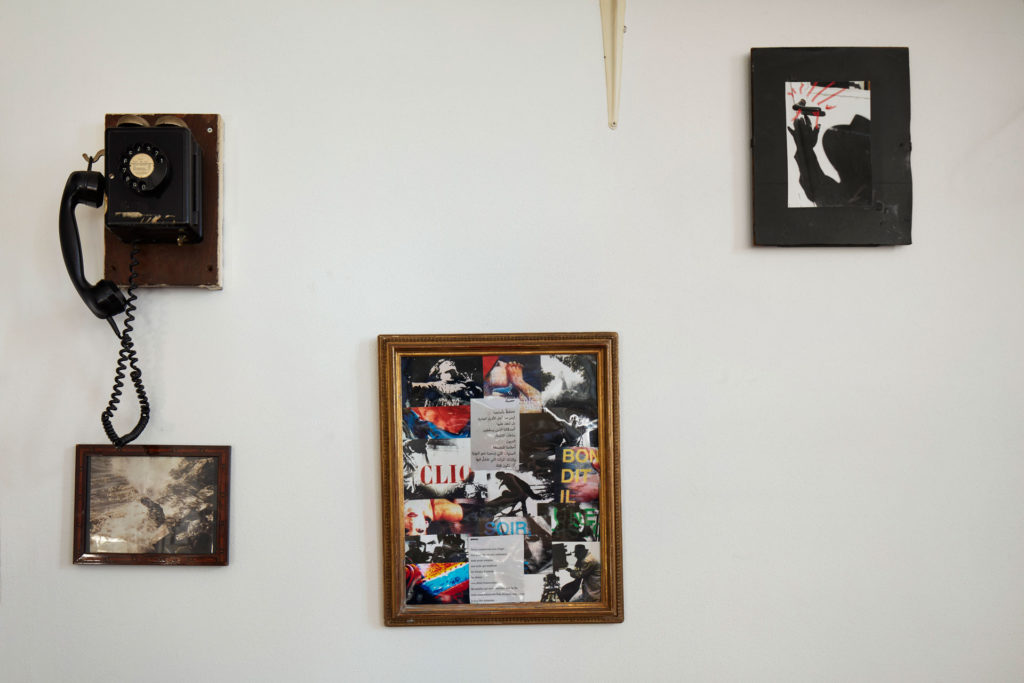
Jean-Luc Godard – Le Studio d Orphee – Ph. Agostino Osio – Alto Piano Courtesy Fondazione Prada

